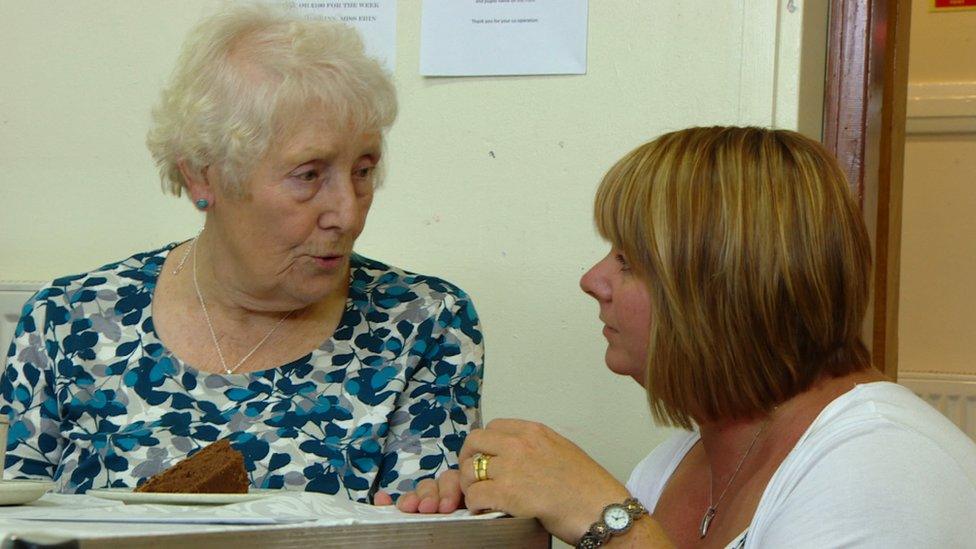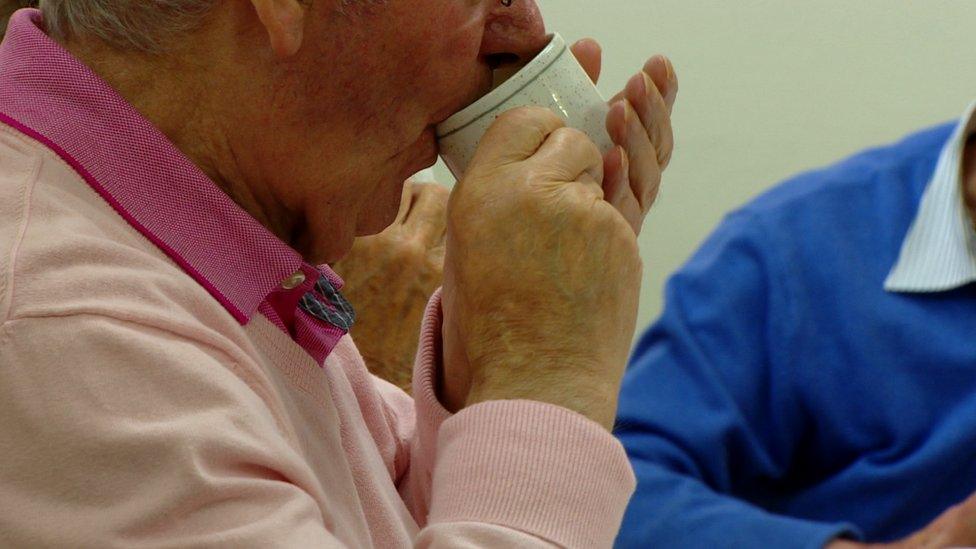Thousands miss out on dementia support scheme
- Published
'My mum needed more dementia support'
Thousands of dementia patients are missing out on vital support they should be receiving from the NHS, a BBC Scotland investigation has found.
The scheme, which promised support for one year after diagnosis of dementia, was launched three years ago.
But the BBC found patients' prospects of getting help varied dramatically depending on where they lived.
The Scottish government said Scotland was the only part of the UK to offer such support.
But a government spokeswoman acknowledged that there was "clearly more to be done" to deliver the service.
A Freedom of Information (FOI) request by the BBC has revealed that from 2013 to March this year thousands of people have missed out on the 12-month post diagnostic guarantee.
In the Western Isles, the service stopped in March 2015 for nearly 18 months, but 100% of people diagnosed with dementia in Orkney and Shetland have received the support.
Forty-nine patients were diagnosed in Orkney and 125 in Shetland.
NHS Western Isles said new staff were being recruited and they have been supporting patients in other ways.
Source: BBC Scotland FOI request

In Greater Glasgow, 4,293 people have been diagnosed since 2013 and 3,228 have received the support. In Lothian, 3,725 were diagnosed with dementia and 1,949 were able to get help from the scheme.
Forth Valley Health Board said it was too expensive to produce figures and denied the FOI request.
Not everyone who is offered the support accepts it.
The one year post-diagnostic support guarantee gives the person with dementia and their carers support from a link-worker for 12 months.
That can be help with benefits, someone to offer information about where support groups are, or just to keep an eye on the condition.
Mandy Couston said her family had received some support from the NHS after her mother was diagnosed with dementia, but not the specialist link-worker they had been promised because of staff shortages.

The dementia support scheme was launched three years ago
"We've been thrown into the deep end and my mum at the end of the day is probably the one that's suffered the most because I think she's been let down," she said.
June Andrews, emeritus professor of dementia studies at the University of Stirling, told BBC Scotland the service offered in Scotland was "fantastic", but said she was concerned about why the figures for health boards were so uneven.
"The variation in uptake could be caused by whoever it is that's offering it, is not offering it in a way that people want it. Or it could be that in [some] places it's just not being offered," she said.
"The research shows that if you give it to people it makes a lot of difference right through the progress of the condition. I think it's the condition that still very many people are having different experiences and sometimes it's not very satisfactory."

Scotland is the only part of the UK to make a national commitment to post diagnostic support for dementia
A Scottish government spokeswoman said: "We're working to deliver our ambition that everyone newly diagnosed with dementia receives a minimum of a year's worth of support. While progress has been made there is clearly more to be done.
"Later this year we will publish the first robust statistics for the implementation of these services at a local level, for 2014-15.
"We're working closely with our partners to support the delivery and measurement of this important and innovative service. Scotland is the only part of the UK to make a national commitment on dementia post-diagnostic support."
A new three-year dementia strategy will be published later in 2016, the spokeswoman added.